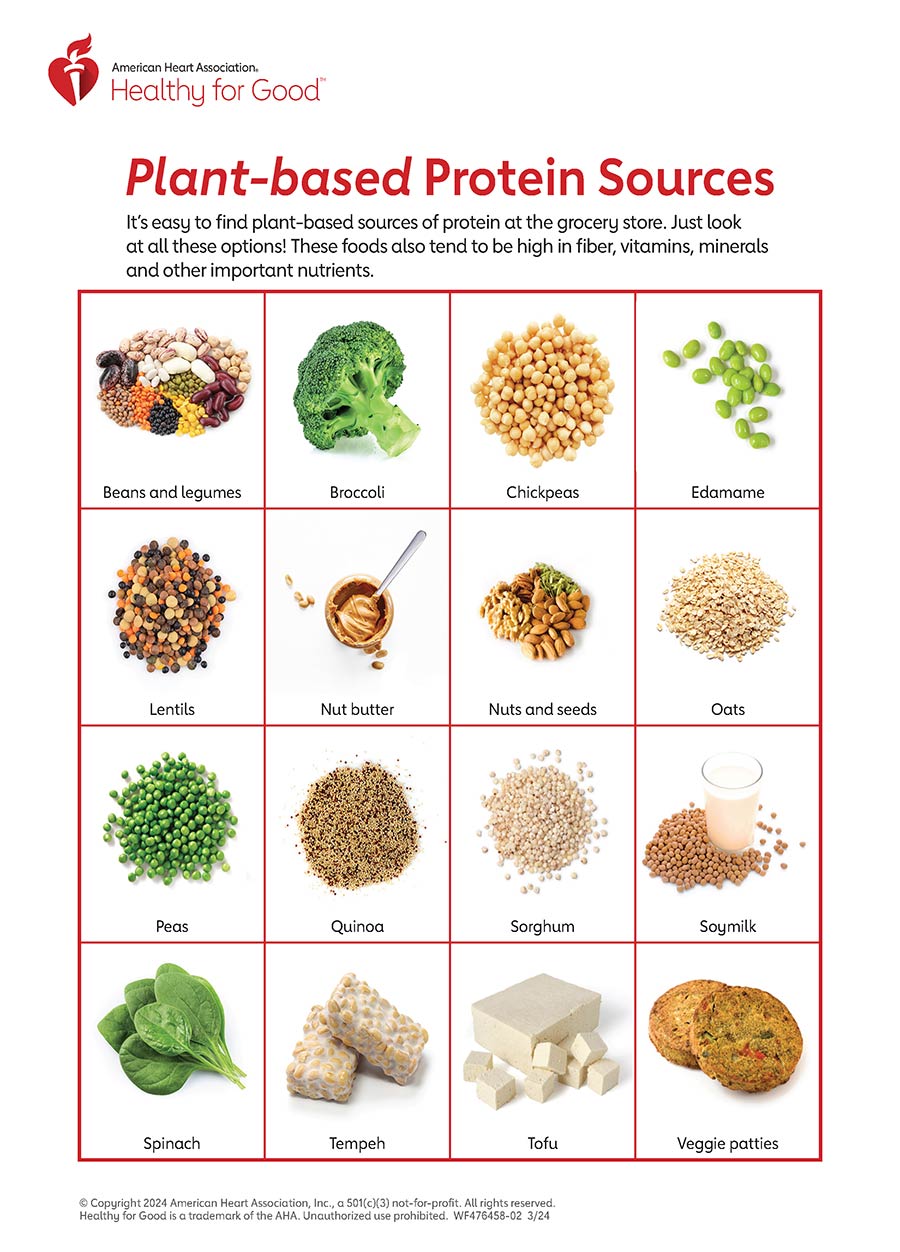Everything About Healthy And Balanced Food: Advantages of Checking Out Plant Based Options
The conversation bordering plant-based diet plans has actually gained considerable attention in the last few years. Numerous individuals are discovering the possible health and wellness benefits, dietary advantages, and environmental influences related to these dietary selections. As individuals become more familiar with their food's influence on health and sustainability, questions emerge concerning the usefulness of taking on such a way of life. What certain modifications can one anticipate, and exactly how might these choices improve not only personal health and wellness yet additionally the earth's future?
Understanding Plant-Based Diet Plans
Although many individuals connect plant-based diet regimens generally with vegetarianism or veganism, these diet plans can incorporate a vast array of consuming patterns that prioritize whole, minimally refined plant foods. Such diet regimens often consist of fruits, veggies, whole grains, seeds, vegetables, and nuts, while eliminating or restricting animal products. This flexibility allows people to tailor their nutritional options according to personal choices and dietary needs. Some may take on a largely plant-based diet while still periodically consuming meat or dairy products, usually described as a flexitarian approach. The focus stays on integrating more plant foods, which can lead to a varied selection of tastes and dishes. Comprehending these numerous analyses of plant-based consuming is essential for valuing its access and appeal in contemporary food culture.
Health Perks of Plant-Based Foods
The health and wellness advantages of plant-based foods are considerable, offering a nutrient density benefit that sustains overall health. Research study indicates that these foods can enhance heart wellness and play a vital duty in reliable weight management. By including more plant-based options, individuals may boost their nutritional options and promote lasting health.
Nutrient Thickness Benefit
Nutrient thickness plays an important duty in the wellness benefits of plant-based foods, making them an engaging option for those looking for a balanced diet plan. Plant-based foods, such as fruits, vegetables, vegetables, nuts, and entire grains, are often rich in important vitamins, minerals, and antioxidants while being lower in calories. This high nutrient thickness enables people to consume less calories while still satisfying their nutritional requirements. Furthermore, these foods are loaded with dietary fiber, advertising gastrointestinal health and assisting in weight monitoring. By including nutrient-dense plant-based options, customers can boost their total health, support their body immune systems, and lower the risk of persistent illness. Inevitably, the nutrient density of plant-based foods emphasizes their value in a health-conscious way of living.
Heart Health And Wellness Improvement

Weight Administration Support
In enhancement to advertising heart health, a plant-based diet plan can considerably aid in weight management. This nutritional technique highlights whole foods such as fruits, vegetables, legumes, nuts, and entire grains, which are normally lower in calories and greater in fiber compared to animal-based products. The high fiber web content aids boost satiety, decreasing general calorie intake. Plant-based diet regimens are typically rich in crucial nutrients while low in undesirable fats, making it simpler to maintain a healthy and balanced weight. Study suggests that people who embrace a plant-based way of living have a tendency to have reduced body mass indexes (BMIs) and experience even more successful weight-loss contrasted to those who take in meat-heavy diets. Welcoming plant-based alternatives is a critical option for efficient weight administration.
Nutritional Worth of Plant-Based Active Ingredients
Plant-based ingredients are abundant in important nutrients, providing a varied range of vitamins, minerals, and anti-oxidants that add to general wellness. A contrast of healthy protein sources exposes that while pet products are typically considered as remarkable, many plant-based choices give adequate healthy protein and various other advantageous compounds. Comprehending the nutritional worth of these components can aid individuals make notified nutritional selections.
Necessary Nutrients in Plants
Nutrient-rich ingredients located in plants use a varied variety of vital minerals and vitamins that add considerably to total health. These ingredients are abundant in vitamins A, C, and K, which support immune function, vision, and blood clotting, respectively. Furthermore, plants give vital minerals such as potassium, magnesium, and calcium, vital for heart health and wellness, muscle mass feature, and bone toughness. The existence of fiber in plant-based foods help food digestion and advertises a healthy and balanced digestive tract microbiome. Antioxidants, found abundantly in vegetables and fruits, help battle oxidative tension and minimize inflammation. Numerous plant foods are low in calories yet high in nutrients, making them a superb option for those looking for to keep a healthy weight while making sure optimal nutrient consumption.

Comparing Protein Sources
Protein sources vary considerably in their dietary accounts, with plant-based components offering distinct advantages. Unlike pet healthy proteins, which commonly consist of saturated fats and cholesterol, plant healthy proteins tend to be reduced in these harmful parts. Legumes, nuts, seeds, and entire grains are rich in vital amino acids, fiber, vitamins, and minerals. Lentils provide high protein web content along with substantial iron and folate, while quinoa is a total protein, providing all 9 important amino acids. Furthermore, plant-based healthy proteins are often come with by antioxidants and phytochemicals that support total health. The change to plant-based protein sources not just enhances dietary consumption but also lines up with lasting dietary practices, lowering environmental impact and advertising lasting health advantages.
Environmental Influence of Plant-Based Eating
As awareness of environment modification grows, several individuals are exploring lasting nutritional choices that can considerably lessen their environmental footprint. Plant-based eating has actually become a substantial contributor to lowering greenhouse gas discharges, which are primarily related to livestock manufacturing. The growing of fruits, vegetables, grains, and veggies usually calls for fewer resources, such as water and land, contrasted to animal farming. In addition, plant-based diet plans can result in reduced deforestation, as less land is needed for grazing livestock or expanding pet feed. By moving in the direction of plant-based alternatives, customers can sustain biodiversity and promote healthier environments. On the whole, welcoming plant-based eating not only benefits individual health however additionally represents an essential step toward environmental sustainability and conservation initiatives.
Conquering Common Misconceptions
While many individuals acknowledge the advantages of a plant-based diet plan, a number of misunderstandings commonly deter them from completely embracing this lifestyle. An usual belief is that plant-based diet plans do not have sufficient protein; however, many plant resources, such as legumes, nuts, and tofu, provide ample healthy protein. Furthermore, some presume that this diet regimen is costly, when in fact, staples like beans, rice, and seasonal vegetables can be quite affordable. Another misconception is that plant-based eating is extremely restrictive, whereas it really supplies a diverse variety of tastes and foods. Ultimately, many worry that a plant-based diet plan might result in shortages, yet with correct preparation, people can get all required nutrients, consisting of vitamins and minerals, while enjoying a wide range of scrumptious dishes.
Tips for Transitioning to a Plant-Based Way of life
Making the change to a plant-based lifestyle can be an improving experience, though it frequently requires some assistance to navigate the initial adjustments. Individuals are encouraged to begin slowly, incorporating even more fruits, vegetables, beans, and whole grains into their dishes while lowering meat and go to my blog dairy intake. Meal preparation is important; preparing a regular food selection can aid ease the modification and protect against final harmful options. Discovering cooking approaches and brand-new recipes can additionally preserve click to read more and boost the experience exhilaration concerning plant-based eating. In addition, signing up with assistance teams or neighborhoods can offer motivation and share valuable tips. Lastly, remaining notified regarding nutrition guarantees balanced meals, protecting against deficiencies while cultivating a healthy and balanced, rewarding plant-based lifestyle.
Delicious Plant-Based Dish Ideas
Exploring scrumptious plant-based dish ideas can motivate people to accept a more nourishing diet. One preferred alternative is a hearty quinoa salad, including cherry tomatoes, cucumber, and a zesty lemon-tahini clothing. An additional favorite is a full-flavored lentil stew, packed with carrots, celery, and aromatic natural herbs, ideal for a reassuring supper. For breakfast, overnight oats made with almond milk, chia seeds, and covered with fresh berries supply a nourishing beginning to the day. Furthermore, a vibrant veggie stir-fry with tofu and a range of vivid veggies can be a fast yet satisfying dish. Ultimately, creamy avocado salute on whole-grain bread, sprayed with seeds and seasonings, offers a straightforward yet flavorful snack. These meals showcase the selection and splendor of plant-based consuming.

Regularly Asked Inquiries
Can a Plant-Based Diet Plan Offer Sufficient Healthy Protein?
The inquiry of whether a plant-based diet plan can give adequate healthy protein is common. Countless resources, consisting of vegetables, nuts, seeds, and whole grains, can meet protein needs properly, sustaining a well balanced and nourishing diet for individuals.
Are Plant-Based Diet Regimens Ideal for Children?
The suitability of plant-based diet plans for youngsters depends upon cautious planning. Sufficient nutrients need to be assured, including proteins, minerals, and vitamins. With appropriate advice, such diet plans can sustain healthy development and advancement in kids.
Just how Do I Eat Out on a Plant-Based Diet plan?
Eating in restaurants on a plant-based diet plan entails seeking dining establishments with diverse menus, asking for modifications, and discovering vegan-friendly alternatives. Preparation ahead and connecting nutritional choices can enhance the dining experience while maintaining nutritional choices.
What Are Typical Allergens in Plant-Based Foods?
Usual allergens in plant-based foods include soy, gluten, nuts, and seeds - Plant Based Beef. Individuals following a plant-based diet should recognize these irritants and check out labels thoroughly to avoid damaging reactions and guarantee safe consumption
Can Plant-Based Diets Assist With Weight-loss?
Study indicates that embracing a plant-based diet plan may facilitate weight loss as a result of its generally reduced calorie density and higher fiber material. This combination can improve satiation, helping individuals manage their calorie intake effectively. Many individuals associate plant-based diets mainly with vegetarianism or veganism, these diet regimens can include a broad array of eating patterns that prioritize entire, minimally refined plant foods. Nutrient density plays a vital role in the health benefits of plant-based foods, making them an engaging option for those seeking a well balanced diet regimen. Plant-based diet plans have been shown to significantly enhance heart health, as they frequently contain components that sustain cardiovascular feature. In addition to advertising heart health, a plant-based diet can significantly aid in weight management. An usual idea is that plant-based diet plans lack adequate over at this website healthy protein; however, many plant resources, such as legumes, nuts, and tofu, provide ample healthy protein.